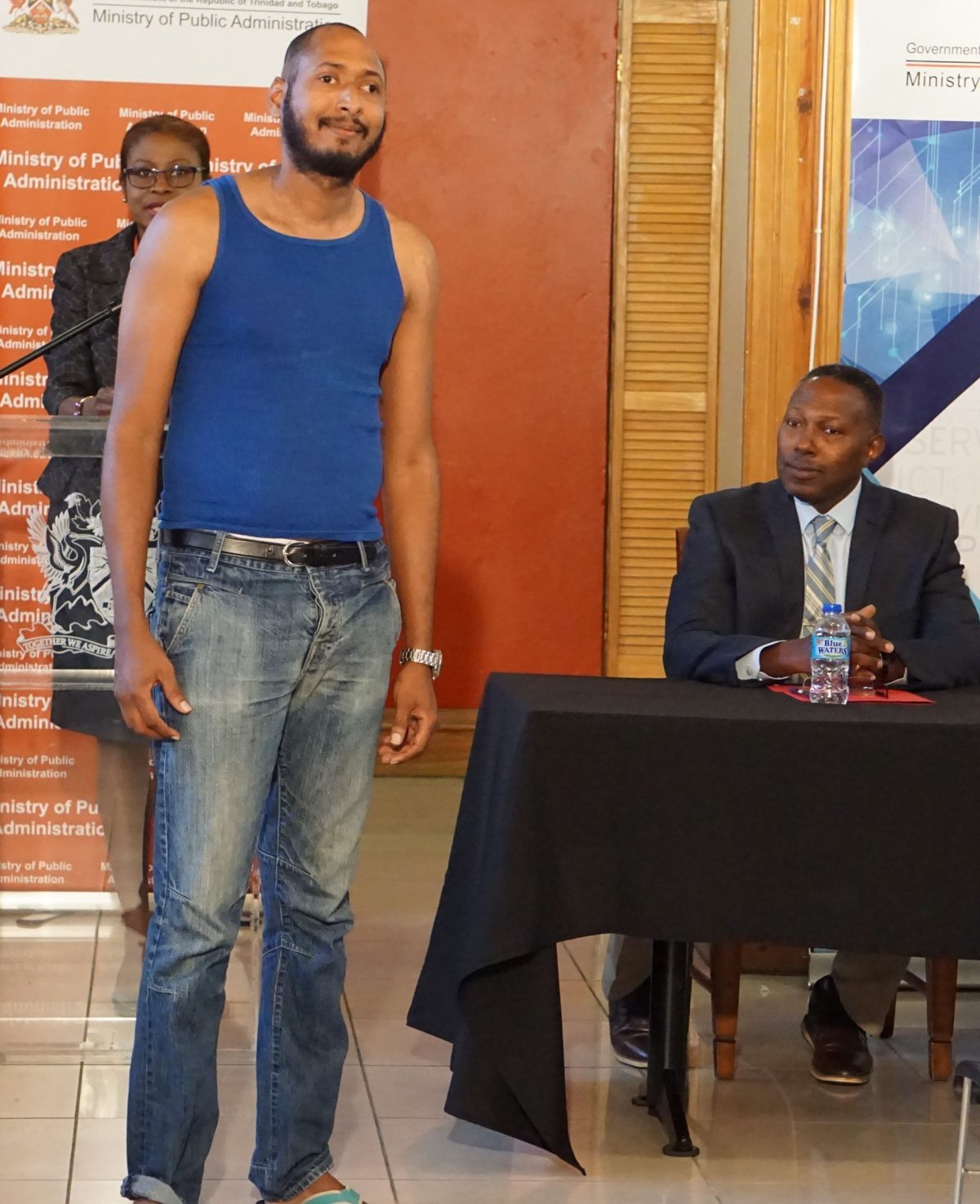(Trinidad Guardian) Over 400 members of staff who work in government offices across multiple ministries have been adequately trained on the new dress code policy for members of the public who visit these offices to conduct business.
From Monday, people entering government offices including ministries, licensing and passport offices will now have additional options of what to wear.
The new dress code allows for vests, slippers and sleeveless dresses as acceptable wear.
During a news conference yesterday, Minister of Public Administration Allyson West revealed the extended details of the new Cabinet-approved policy for a standardised dress code.
According to West, clients and visitors will be allowed to wear sleeveless clothing including thin-strap dresses, distressed jeans, mid-thigh pants and skirts as well as slippers to conduct business at these offices. Headwear and facial coverings that do not prevent facial recognition are also now allowed.
People wearing face or body coverings for religious or health reasons will be taken to a private area for facial identification and can return to the main areas of the offices to continue conducting their business.
However, the rules in place for picture identification including identification cards, passport, and visa photo rules still apply.
The new rules do not apply to schools, judicial offices and Courts, police stations, hospitals or health centres.
Before being denied service for non-compliance with the dress code, people will be allowed to express a legitimate reason for not adhering to the rules. For example, in unique circumstances where an individual’s belongings are destroyed due to fire or flood.
West also said 400 staff across multiple ministries were selected and trained on the new policy as senior customer service representatives.
Speaking yesterday, West said, “What we’re asking you not to do is, is to not have vulgar displays in respect of your clothing, no gang symbols or in respect of any signage or pictures on your clothing. No swimwear, no sheer clothing, no bare back, no vulgar or obscene messages or images, no gang symbols.”
She added, “The policy before was a combination of archaic and rigid. What we have tried to do is introduce a more relaxed policy to accommodate the provision of services.”
But when Guardian Media visited some government offices yesterday, some people questioned if the new relaxed rules would be abused.
Speaking outside the Office of the Attorney General and Ministry of Legal Affairs in Port-of-Spain Candy Charles said, “I find it’s a good thing because I have a kind of sweating problem. Having a lot of clothes does make me sweat a lot. So, if I could just come with a little vest, not a short pants but a long pants, something appropriate. But there will be some people advantaging this new rule. They will come half naked, so they have to know what they going with that.”
Stephen Kissoon felt the new dress code was long overdue.
“I feel good about it because sometimes you’re working and you don’t have on a long pants and want to run in there and get something as you’re in town. Now you have to go home and get clothes and come back into town so I feel good about it,” he said.
Isaac Greaves added, “I like how they bring it on, real nice.”
Others said they hoped more public and even private offices would adopt the new policy.





